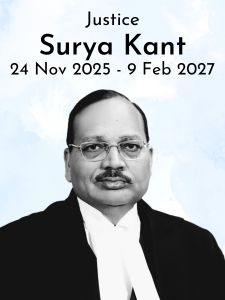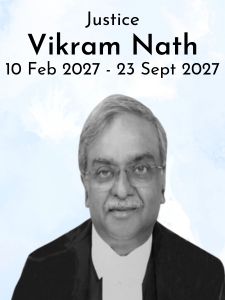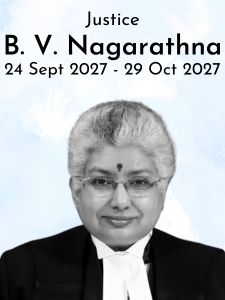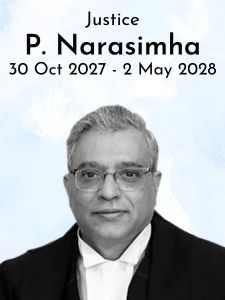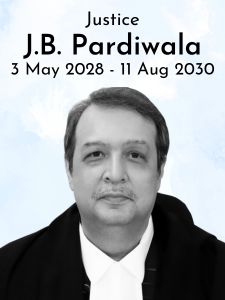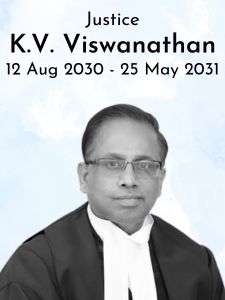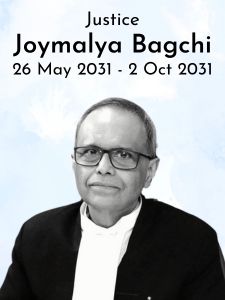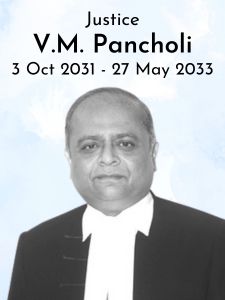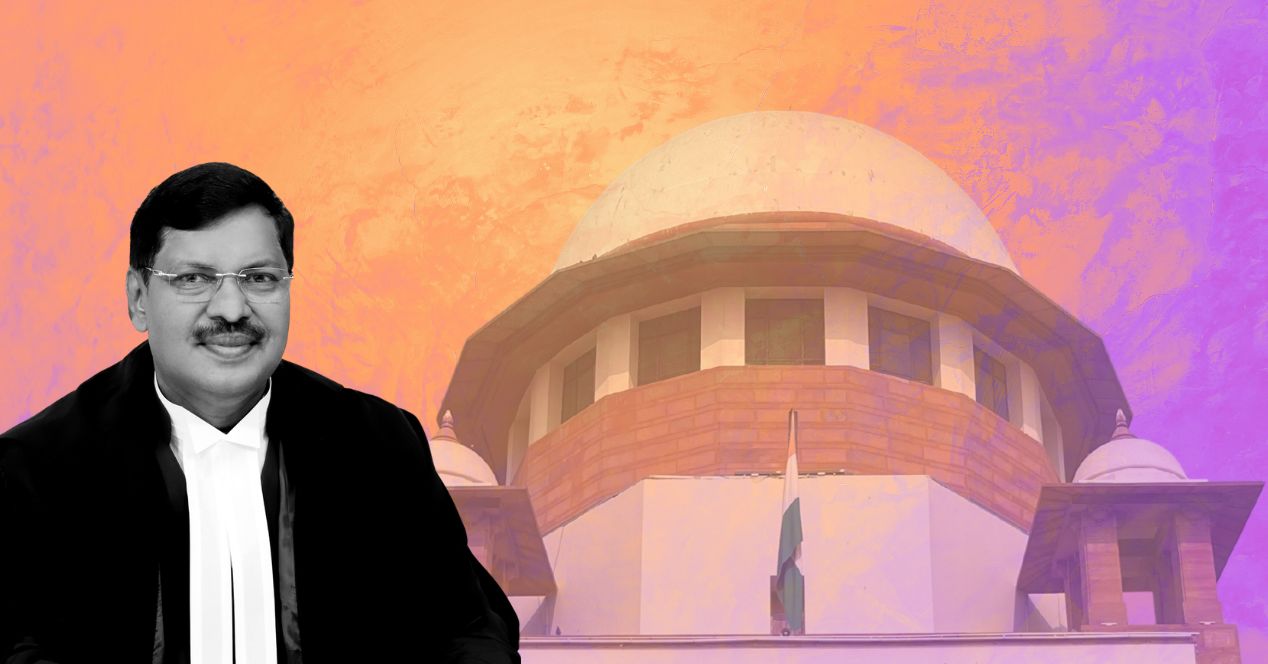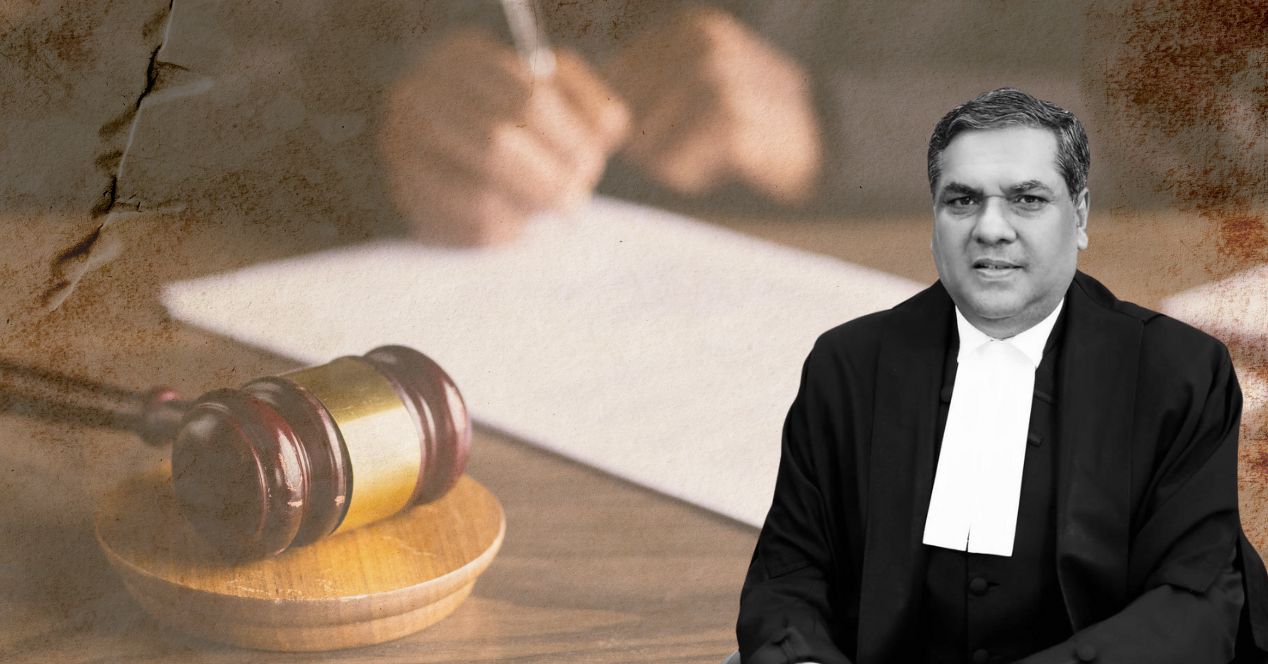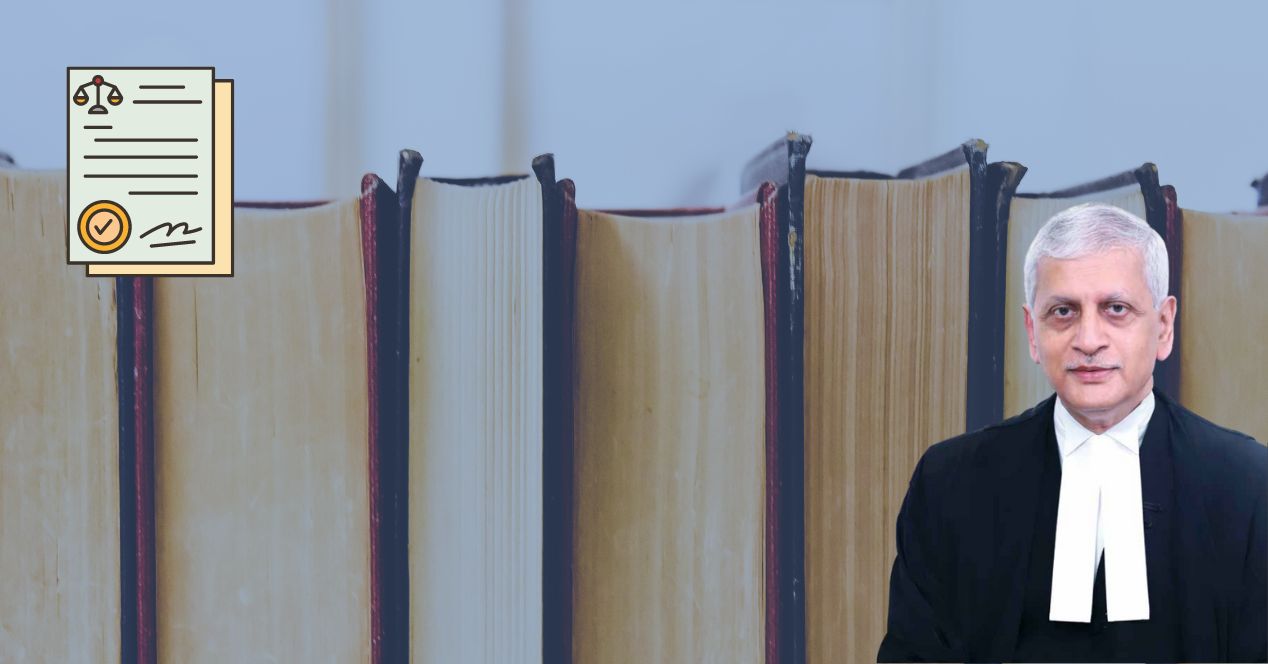Analysis
The next eight Chief Justices of India: 2025 to 2033
If the seniority principle is followed, these eight Judges will lead the Supreme Court of India as Chief Justice till 2033
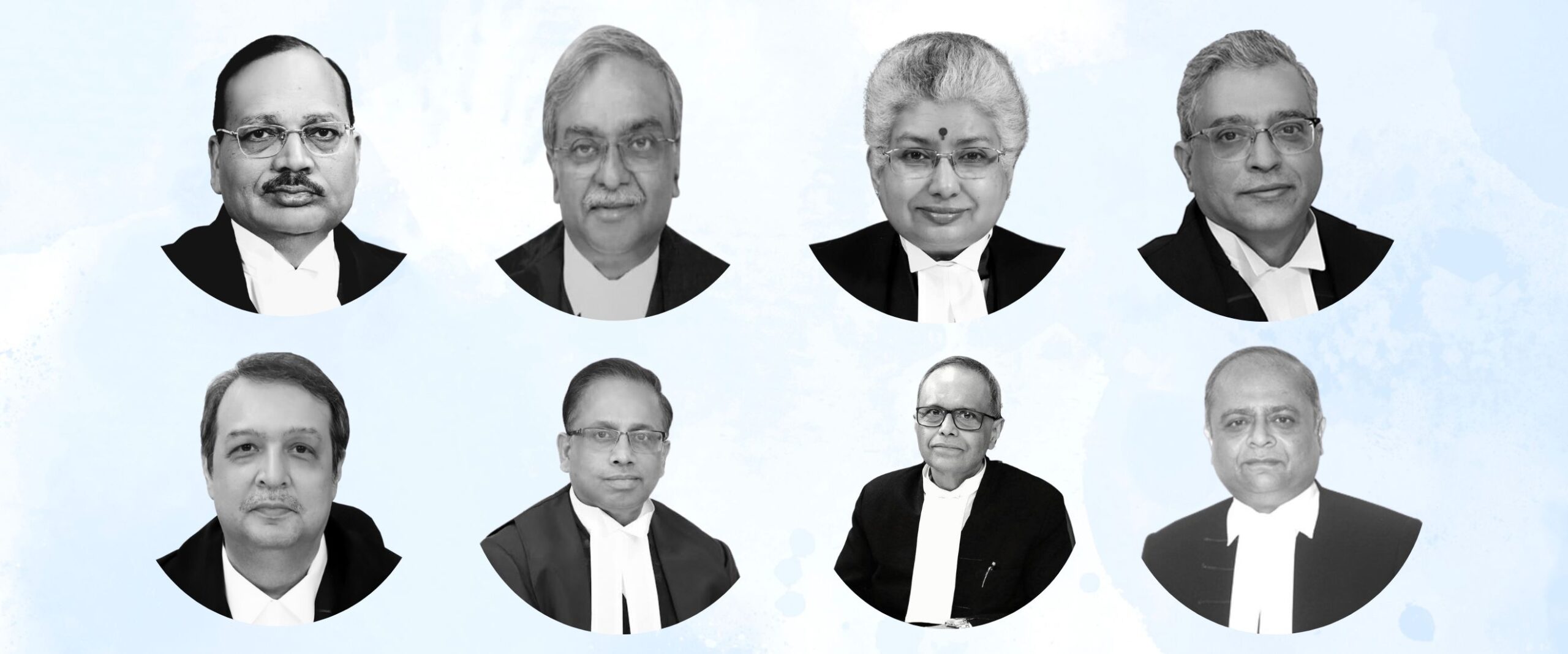
On 23 November 2025, Chief Justice B.R. Gavai retired as the 52nd Chief Justice of India after a tenure of six months. He was succeeded by Justice Surya Kant, who will be on the helm for over a year until February 2027.
The role of the Chief Justice is not limited to presiding over cases. It extends to managing the Court itself. The CJI is the Master of the Roster and is tasked with constituting benches of two or more judges and allocating cases to them. The CJI is considered to be the first among the equals.
The Chief Justice of India is appointed through the principle of seniority. The outgoing CJI recommends his successor, who is generally the next senior most judge. In 75 years of the Court, there have only been two instances where the seniority norm was set aside and junior judges superseded the senior judges to take office as CJI.
In this article, we look at careers and cases of Supreme Court judges who are in line to be the Chief Justice of India, as per seniority.
Justice Surya Kant (53)
Justice Kant took over on 24 November 2025, and will have a tenure of 1.2 years. He will retire on 9 February 2027.
Justice Kant has been a sitting judge of the Supreme Court since May 2019, and was elevated alongside CJI Gavai. Justice Kant hails from the Punjab and Haryana High Court where he was appointed in January 2004. Subsequently, he served as the Chief Justice of the Himachal Pradesh High Court.
At the top court, Justice Kant has notably been on Constitution Benches which upheld the Abrogation of Article 370, and the validity of Section 6A of the Citizenship Act, and on the Bench that upheld the minority status of Aligarh Muslim University where he dissented.
Justice Kant was on the Division Bench which granted bail to former Delhi Chief Minister Arvind Kejriwal in the liquor policy corruption case investigated by the Central Bureau of Investigation (CBI). Justice Kant authored a separate opinion upholding Kejriwal’s arrest, holding that CBI followed due procedure for his arrest while he was in custody of the Enforcement Directorate (ED). He was on the Division Bench which restricted Ranveer Allahabadia from uploading any media content on his channel after the India’s Got Latent controversy—a restriction which was later relaxed.
Justice Kant was also on the five-judge Bench that heard the Presidential Reference concerning the powers of the Governor and the President. He also heard the challenge to the Special Intensive Revision of Electoral Rolls in Bihar where the Bench directed the adoption of the Aadhaar card as a document for the exercise. Finally, Justice Kant is on the Bench hearing the review of Vijay Madanlal Choudhary v Union of India (2021) which upheld the wide investigative powers of the ED and the stringent bail conditions under the Prevention of Money Laundering Act, 2002.
According to data provided by Manupatra, Justice Kant has authored 291 judgements at the Supreme Court so far.
Justice Vikram Nath (54)
Justice Nath is set to be the CJI in February 2027 and will be taking over from Justice Surya Kant. He will have a relatively shorter tenure compared to his predecessor with seven months, before retiring on 23 September 2027.
Justice Nath has been a judge of the Supreme Court since August 2021. He was one among the nine judges elevated to the Supreme Court by CJI N.V. Ramana—a cohort that included three future CJIs. He is the third-seniormost sitting judge of the Supreme Court. He was a sitting judge of the Allahabad High Court between September 2004 to September 2019. Subsequently, he was appointed as the Chief Justice of the Gujarat High Court.
He was on the Constitution Bench which upheld the sub-classification of the Scheduled Caste and Scheduled Tribes community for reservations in education and employment. In 2023 he was on the five-judge Bench that decided against additional compensation for victims of the Bhopal Gas Tragedy. Justice Nath joined Justice Kant on the Bench that heard the Presidential Reference.
He has authored 260 judgements at the Supreme Court.
Justice B.V. Nagarathna (55)
Justice Nagarathna will become the first woman Chief Justice of India in 75 years of the Court’s existence. This historic moment comes with a catch—she will serve as CJI for just 36 days. Justice Nagarathna was among the nine judges that were elevated alongside Justice Nath in August 2021. She will retire on 30 October 2027.
Previously, Justice Nagarathna was a judge of the Karnataka High Court between February 2008 and August 2021.
She was the sole dissenter in the Constitution Bench case which upheld the Union’s 2016 Demonetisation Scheme, stating that incorrect procedure was followed when it was adopted. Moreover, she penned two dissenting opinions stating that the Union government should regulate industrial alcohol and tax mines and minerals, both times holding that Union supremacy must be respected even in a federal system. Notably, Justice Nagarathna captured headlines in August 2025 for vocally dissenting against the appointment of Justice V.M. Pancholi, who is also in line to become a Chief Justice.
Justice Nagarathna has authored 326 judgements at the Supreme Court so far.
Justice P.S. Narasimha (56)
Justice Narasimha will take the reins after Justice Nagarathna’s retirement in October 2027. He is expected to have a tenure of over six months and will retire on 4 May 2028. Notably, he is the third bar-elevated judge to be appointed as the CJI. CJIs S.M. Sikri and U.U. Lalit are the only Chief Justices of the Supreme Court so far who were directly elevated from the Bar.
Justice Narasimha was among the nine judges who were elevated in August 2021. He was a practicing lawyer at the Supreme Court and became the Additional Solicitor General of India in 2014. He had argued for the Union in important cases such as the Ayodhya Title Dispute, the National Judicial Appointment Commission case and the Euthanasia verdict.
As a sitting judge of the Supreme Court, Justice Narasimha authored a concurring opinion on the Constitution Bench which denied the right to marry for sexual minorities. Further, he authored the dissenting opinion in the case which held that unilateral clauses in public-private arbitration contracts were violative of Article 14 of the Constitution.
He has authored 218 judgements at the Supreme Court so far.
Justice J.B. Pardiwala (57)
Justice Pardiwala will take over as Chief in May 2028 and will retire after a tenure of over two years on 11 August 2030. He is the only judge in this list with a tenure longer than two years.
Justice Pardiwala was appointed in May 2022 and hails from the Gujarat High Court. He is the fourth Parsi judge to be elevated to the Supreme Court.
Notably, Justice Pardiwala authored the concurring opinion upholding the reservations for economically weaker sections. He authored the sole dissenting opinion on the validity of Section 6A of the Citizenship Act, stating that the provision was unconstitutional due to “temporal unreasonableness”. Justice Pardiwala was on the Division Bench which had ordered the relocation of stray dogs to shelters and pounds within eight weeks. The Order led to widespread outrage at the time. Notably, he had also authored the Judgement which set timelines for the Governor and the President to grant assent to state bills. A Presidential Reference was issued a month after the judgement.
He has authored 307 judgements so far.
Justice K.V. Viswanathan (58)
Justice Viswanathan will be the fourth CJI to be appointed from the Bar and will serve a tenure of 10 months and retire on 25 May 2031.
Justice Viswanathan was appointed to the top court in May 2023. He was designated as a senior advocate of the Supreme Court in 2009. As an advocate, Justice Viswanathan had appeared at the Supreme Court for the Internet Freedom Foundation in the Constitution Bench case concerning the challenge to WhatsApp’s privacy policy. He had argued in favour of the right to marry for transgender persons in the plea for marriage equality. In 2018, he was appointed as amicus curiae to advise the Court on the filling up of vacancies in the district courts. He assisted the Court in monitoring the appointment process in the states of Gujarat, Karnataka, Jammu & Kashmir, Himachal Pradesh, Jharkhand and Kerala.
As a Judge, Justice Viswanathan was on the Division Bench which referred Kerala’s original suit against the Union to determine the extent of states’ power to borrow funds from the Union government, to a Constitution Bench.
He has authored 78 judgements at the Supreme Court so far.
Justice Joymalya Bagchi (59)
Justice Bagchi will take over after Justice Viswanathan’s retirement in May 2031. He will serve a tenure of four months and retire on 2 October 2031.
Prior to his stint at the Supreme Court, Justice Bagchi was a judge of the Calcutta High Court and the Andhra Pradesh High Court. In recommending him, the Collegium had taken special consideration of the fact that a Judge from the Calcutta High Court had not ascended to the post of the Chief Justice since the retirement of CJI Altamas Kabir in 2013. His appointment clarified that the position of the CJI is a factor considered by the Collegium while recommending judges.
Justice Bagchi is on the Bench which is hearing the plea about the Special Intensive Revision of Electoral Rolls in Bihar.
He has authored 17 judgements at the Supreme Court so far.
Justice Vipul Pancholi (60)
Justice Pancholi will take over as the 60th CJI for 1.5 years and retire in May 2033.
Prior to this, Justice Pancholi was the Chief Justice of the Patna High Court. He was elevated as a judge of the Gujarat High Court in October 2014. After that, he was transferred to the Patna High Court where he became the Chief Justice in July 2025.
The appointment of Justice Pancholi was controversial as reports suggested that Justice Nagarathna, a member of the Collegium, had dissented against his appointment. Reportedly, she had stated that Justice Pancholi’s appointment would be “counter-productive” to justice administration and harm the Collegium’s credibility.

